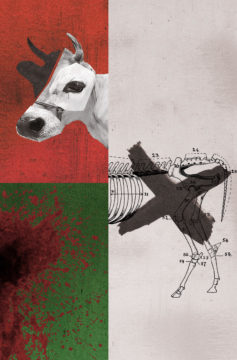 Sharanya Deepak in The Baffler:
Sharanya Deepak in The Baffler:
WHEN JUNAID KHAN was a young boy, his mother, Saira Begum, would return home close to nightfall. She would squat next to an open fire to cook rotis for her hungry son, who would smear them with butter. “Junaid would eat rotis in whole gulps. I had to stop him before he ate too much,” Saira told me one summer evening in 2019. She lives with her relatives in a small brick house in Khandawali, a village in Haryana near New Delhi. When we spoke, she lay on her divan. In a corner stood a desk on which Junaid would study. Like many women in her village, Saira is a farm laborer whose income—four thousand rupees per month in 2019, or fifty-seven dollars—does not ensure food for her family at all times. She owns one buffalo, however, that she milks and uses to plow the land that she works. Food is scarce in her home, but the white butter she made with buffalo milk was delicious and filling for her children.
Junaid was sixteen years old when he, his older brother Hashim, and two friends were attacked on a train in Haryana in June 2017. The boys were commuting home from an Eid shopping trip and a visit to the mosque when they were asked to vacate their seats by a group of men. When I visited Saira’s home, Hashim explained that the men noticed they were Indian Muslims and threatened to beat them if they didn’t move. “They were older, larger, and Hindu,” he recounted, as he fiddled with a photograph of Junaid. “They kept calling us beef eaters,” he continued, along with other faith-based slurs.
More here.
